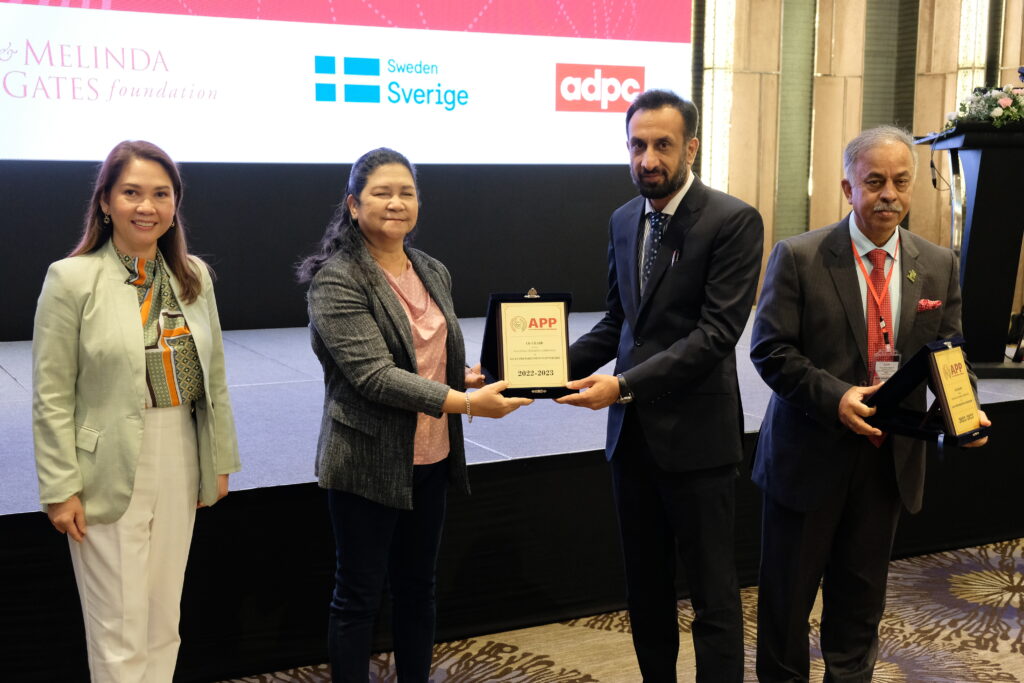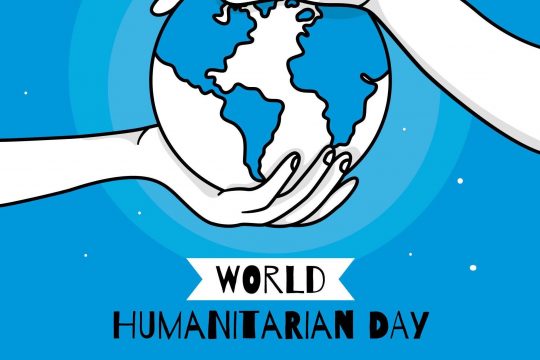The seventh Asian Preparedness Partnership Regional Steering Committee Meeting (APPRSC) took place on 24 August 2022. The partnership’s key stakeholders gathered in Bangkok to focus on regional updates. These reflections included the key tools and guidelines that have been developed as well as South-South knowledge sharing through the regional technical working groups (RTWG) and digital platforms. These sessions centered on input and the way forward for the next phase of APP.
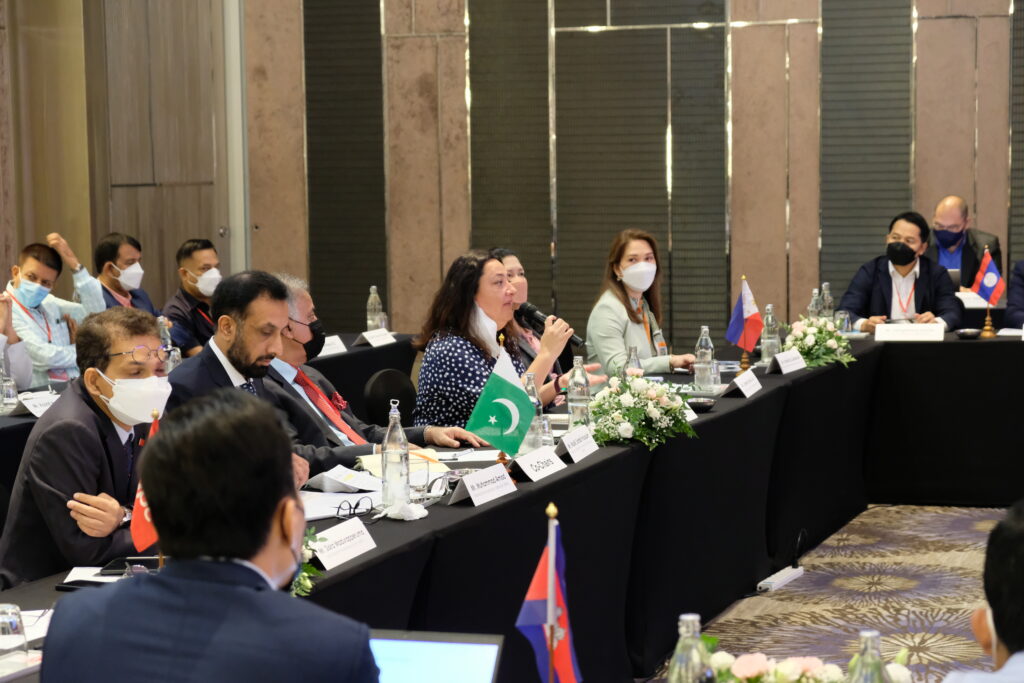
The meeting was initiated by the co-chair of the Pakistan Resilience Partnership (PRP) – Muhammad Amad, Chairperson, National Humanitarian Network (NHN). He welcomed everyone to the session and noted that it was refreshing to see regional partners in person as opposed to the online modality of the previous APPRSC. Muhammad’s speech was followed by opening remarks from Dr. Valerie Bemo, Deputy Director, Emergency Response, the Bill & Melinda Gates Foundation (the foundation).
The first session started with a presentation on the APP self-assessment tool – Core Humanitarian Standards Assessment Tool (CHSAT), Institutional Capacity Assessment Tool (ICAT), and the Self-assessment Tool for Institutional Engagement (TIE). Edwin M. Salonga, Philippines Country Manager, ADPC, and Shaikh Zaman, Integrated Knowledge Management Specialist, ADPC, presented the overview, purpose, and way forward with the tools. Their presentation was followed by a question and answer (Q&A) session that considered the possibility of expanding the tools on a global scale.
The second session was led by Shalini Kanwar, Program Lead – Localization, ADPC, on regional updates. She detailed the key interventions that are being implemented to create an enabling environment for localization. These components included communications and outreach, amplification of local-led action at regional and global platforms, inter-regional discourse on similar strategies for localization, and regional regional knowledge-sharing forum to enhance connectivity between stakeholders. Shalini continued to elaborate on how the RTWG, linkage with other organizations, APP tools, and communications channels are working to enhance this agenda.
Each of the RTWG representatives continued the regional update with an overview of their achievements in the past year and the way forward. The first presentation on private sector engagement (RTWG-PSE) was given by Chandraratne D. Vithanage, Senior Assistant Secretary General of The Ceylon Chamber of Commerce, Sri Lanka. He expanded on the study and case study booklet on the private sector’s engagement during the COVID-19 pandemic and the business continuity planning (BCP) that is available on the APP platform. Chandraratne concluded that the group continues to develop knowledge products and a strategy for future activities and events. They would also strive to further localization at the subnational levels through provincial and district level private sector networks.
Chandraratne was followed by Dr. Youba Raj Luintel, Tribhuvan University (Nepal), who presented on the RTWG on Inclusive Approaches to Localization (IAL) of DRR/M. This RTWG’s activities have largely centered on developing a pool of experts and trainers at the national level for integrating IAL. It ran a pilot course that introduced experienced DRRM practitioners from APP countries to core concepts underpinning a rights-based and inclusive approach to early warning, evacuation, and camp management. This course was followed by a training of trainers (ToT) aimed at building out a large network of national actors operating in DRRM who could integrate human rights and gender equality principles into their environments. Additional trainings are slated to begin in the next few months, and case studies from the countries are being compiled into a booklet on inclusivity.
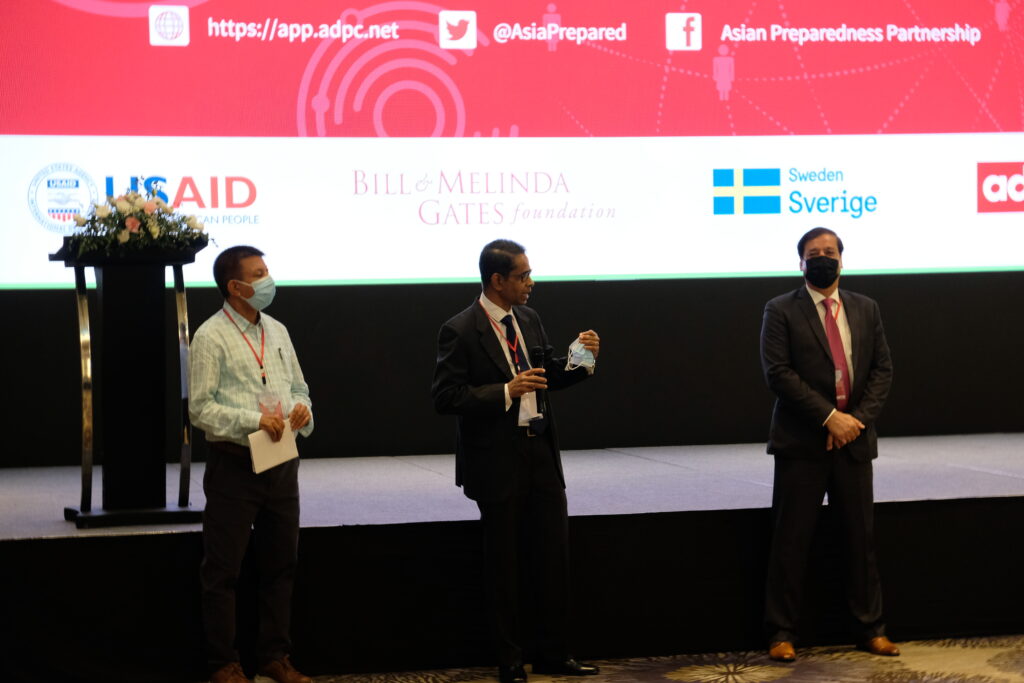
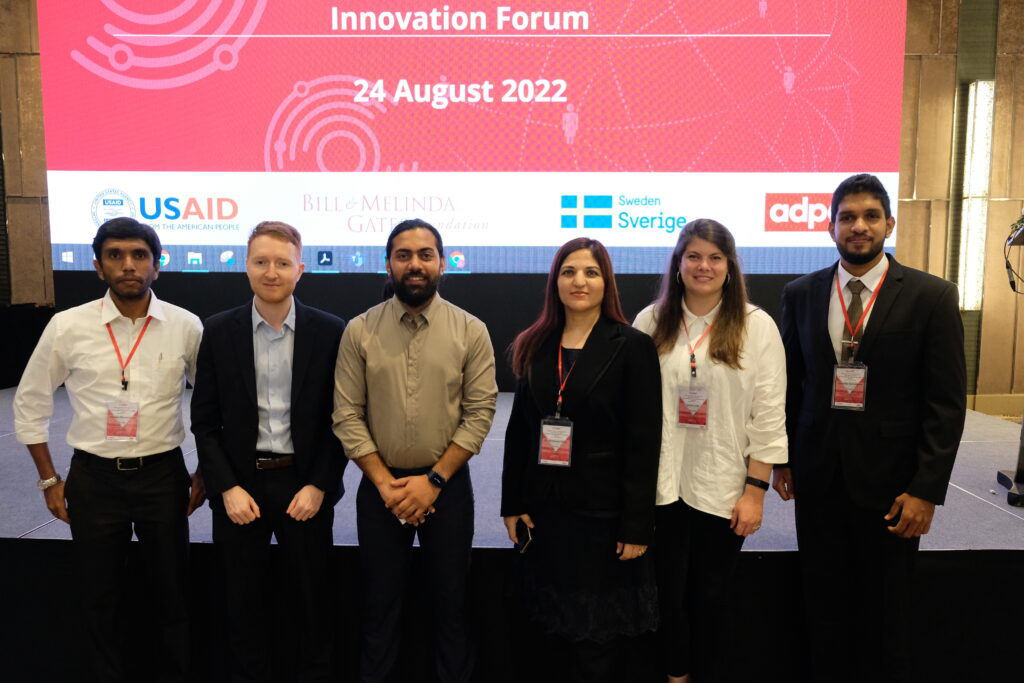
Sajid Naeem, Pakistan Country Manager, ADPC, presented the updates for the RTWG on the Nexus between Emergency Operation Centers (EOCs), Early Warning Systems (EWS), and Risk Analytics. The working group was established to contribute to strengthening EOC’s role in preparedness and response by building a web of connections with EWS and risk analytics through knowledge exchange. Sajid was pleased to report a number of examples of regional knowledge sharing through the RTWG platform and highlighted special sessions led by invited experts on cyclone preparedness and early warning mechanisms. Additionally, a booklet of case studies is under development. Looking forward, the working group plans on expanding its learning sessions into more comprehensive training modules and developing a set of guidelines for coordination and decision-making related to the targeted nexus. After voting to continue the RTWGs, the floor was opened to all participants to add their thoughts on APP’s next step forward. Speakers demonstrated deep understanding and critical thinking concerning the need for more local voices, and made the case for APP to offer one of the most comprehensive avenues for international actors and donors to siphon resources to the ground.
The remainder of the APPRSC was devoted to the Innovation Forum, which was a platform to showcase the seven winners of APP’s Social Grand Innovation Challenge. The seven winners, who came from five of the APP countries, gave presentations and demonstrations of their product/service and then answered participants’ questions. Each of the winning strategies promoted the leadership of local actors in addressing pertinent DRM-related challenges. Solutions included new early warning systems, online community networks, and geospatial mapping tools to identify varying levels of risk between localities. APP recognizes the importance of identifying, nurturing, and scaling grassroots projects to support localization initiatives, and the success of the Social Grand Innovation Challenge shows great promise for future innovative work.
The final activity of the APPRSC was the formal changeover of co-chairship from PRP to the Philippines Preparedness Partnership (PhilPrep). PhilPrep expressed its commitment to extending the example set by PRP and other previous co-chairs as APP looks to institutionalize its successes into national and local frameworks throughout Asia. Pilar Pacheco, Program Officer, the Foundation, congratulated all participants in the event’s final remarks, “This is a special occasion after being apart for two years. We see a mature partnership that is multi-sectored and between ADPC and other partners.”
